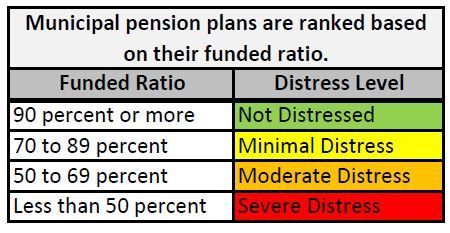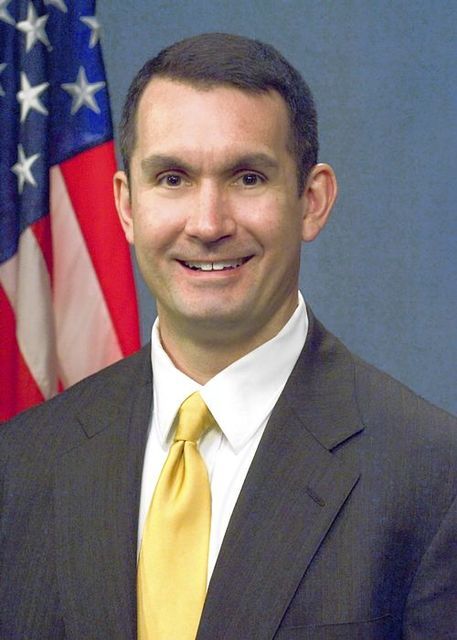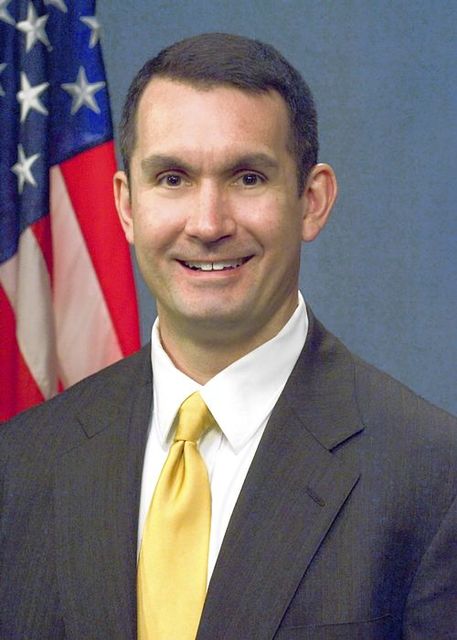HARRISBURG — Pittston came up more than $230,000 short of its minimum police pension payment last year, the second straight year it failed to meet the obligation on time, the state Auditor General’s office announced Wednesday.
An audit completed last month confirmed Pittston satisfied its 2014 pension obligation with a late payment of $295,864, plus a $39,107 interest penalty. The city owed a total of $518,553 toward its three pension plans in 2015, but fell short of its police pension obligation by $230,006, the state Auditor General’s office said.
Auditor General Eugene DePasquale said in a news release that the city “continues to struggle with its pension payments.”
“These late payments have a significant financial impact,” DePasquale said. “The city was stung for nearly $40,000 in interest for 2014. Now, they will get stung again for another late payment.”
If the city doesn’t correct the problem to DePasquale’s satisfaction, it could face sanctions, such as the loss of approximately $200,000 in annual pension assistance from the state, which would put the city in even more dire financial straits.
City Administrator Joe Moskovitz said a “perfect storm” of circumstances was behind the city’s failure to meet its legally required pension obligations, but a plan is in place to right the ship.
The perfect storm, Moskovitz said, consisted of invested funds failing to provide an expected 7 to 7.5 percent return, and several employees taking disability retirements. Actuarial consultants who determine how much a municipality must contribute each year to properly fund a pension plan don’t factor in possible disability retirements.
So, the city’s minimum annual contribution shot up from about $40,000 to about $300,000 over a period of 18 months, Moskovitz said.
To address the situation, the city:
• Has dedicated 1 mill of real estate taxes to help address the shortfall in this year’s budget and is expected to continue to do so in future years. That should provide the city with about $75,000 a year to pay down the $230,000 delinquency over a period of three years, starting this year. The city has already paid $100,000 of the $230,000 into the plan this year and will pay the remaining $130,000 by year’s end, Moskovitz said.
Moskovitz said he expects the city will be delinquent in payments for two more years, but the delinquent amount will decrease each year by $70,000 to $80,000.
• Will work to cut expenditures from the general fund budget and put the savings toward the city’s pension contribution.
• Will invest less heavily in downtown infrastructure development than it has over the past several years and begin relying more on private investment.
• Will try to negotiate union contracts that require higher contributions from employees into their pension plans, perhaps up to 7 percent of their salaries. The city already has negotiated higher employee contributions with the police, clerical and public works unions. Moskovitz said employees were contributing one-tenth of 1 percent of their salaries when he was hired by the city six years ago. Now, clerical and public works employees contribute 5 percent; police officers contribute 4 percent this year and next year and will contribute 5 percent in 2018 and 2019. Firefighters contribute 1 percent, but their contract expires at the end of this year.
DePasquale noted in his audit that the police pension fund has improved, with the funding level growing from 47 percent in 2013 to 59 percent in 2015, jumping from what is classified as “severely distressed” to “moderately distressed.” The clerical/public works and fire pension funds are “doing very well,” funded at 94.3 percent and 100.4 percent, respectively.
Moskovitz said it would benefit the firefighters to help out the city and its taxpayers by agreeing to higher employee contributions because if the police pension fund remains delinquent, the state could aggregate and impose sanctions on all three funds.
Right now, there are no plans to raise taxes or initiate layoffs to address the pension funding issues, Moskovitz said.
DePasquale said he met with Pittston officials after they missed their 2014 pension payment, and they “seemed sincere in addressing the pension issues but knew it would take time. They seem to have a plan that moves them in the right direction.”
Moskovitz and DePasquale both said statewide pension reform is needed.
DePasquale noted that nearly half of all municipal pension funds in the state are distressed, with nearly $8 billion in unfunded liability.
Moskovitz said it would help municipalities if the Legislature prohibited defined-benefit pension plans for public employees in which employees are guaranteed a certain payment, and allowed defined-contribution plans in which employers match employee contributions (at any given percentage). He noted that the New Jersey Legislature made that switch about five years ago because defined-benefit plans are “unsustainable.”
He also said pension plans should not be part of collective bargaining, especially because Harrisburg mandates binding arbitration.







